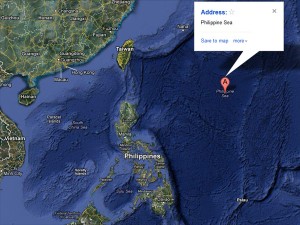China willing to ease tensions, says top envoy
JAKARTA—China’s top diplomat said on Friday the country was willing to ease differences over the handling of territorial disputes in the South China Sea (West Philippine Sea) and build a consensus to finally adopt a regional code of conduct over the disputed waters.
Chinese Foreign Minister Yang Jiechi is on a two-day visit to Indonesia after his Jakarta counterpart, Marty Natalegawa, made whirlwind visits to Southeast Asian nations trying to smooth over discords over the handling of the South China Sea disputes.
A recent meeting of the Association of Southeast Asian Nations (Asean) ended in disarray after the regional body declined to issue a concluding joint statement mentioning the ongoing maritime disputes between China, on one hand, and the Philippines and Vietnam on the other. Diplomats of the Philippines and Cambodia, which hosted the Asean meet, have since been exchanging barbs over who was to blame for the meeting’s controversial end.
Yang said at a joint news conference on Friday that China was willing to work with Asean to implement the Declaration of Conduct of Parties in the South China Sea. That document was signed by Asean and China in 2002 and discourages aggressive acts that might spark clashes, but it has not yet been implemented.
Framework
China was also willing “on the basis of consensus” to work toward the eventual adoption of the Code of Conduct on the South China Sea,” Yang said. China has yet to sign that document, an advanced framework for peacefully resolving disputes in the South China Sea.
Four Asean members—Brunei, Malaysia, Vietnam and the Philippines—plus China and Taiwan claim all or part of the South China Sea, which is rich in fishing, has some of the world’s busiest sea lanes and is believed to have vast energy deposits.
China has long said it wants to handle disputes over its claims bilaterally, while the other claimants have tried to raise the issue in international forums. Yang did not raise those differences in his remarks.
Department of Foreign Affairs spokesperson Raul Hernandez welcomed China’s remarks, saying putting commitment to action in an atmosphere of mutual trust is key in resolving the escalating maritime disputes.
“It is important for the region that Asean and China take concrete actions to put our commitments to work,” Hernandez said in a statement sent to the Inquirer on Saturday.
Mutual trust
“A meaningful and credible regional code of conduct will be key to these efforts,” he said.
He reiterated the need for claimant countries to comply with international law in resolving the discord.
“The West Philippine Sea issue requires all parties to foster an atmosphere of mutual trust as we continue to explore peaceful approaches to addressing the disputes and consider mutually acceptable solutions that are in accordance with principles of international law including Unclos (United Nations Convention on the Law of the Sea),” Hernandez said.
Yang is visiting Indonesia, Brunei and Malaysia. He is not scheduled to visit Manila, however.
The Philippines has sent a slew of protests to China against several incursions in the West Philippine Sea and, most recently, Chinese settlement in Sansha City, its administrative and military establishment supposed to govern the Spratlys.
For comprehensive coverage, in-depth analysis, visit our special page for West Philippine Sea updates. Stay informed with articles, videos, and expert opinions.

